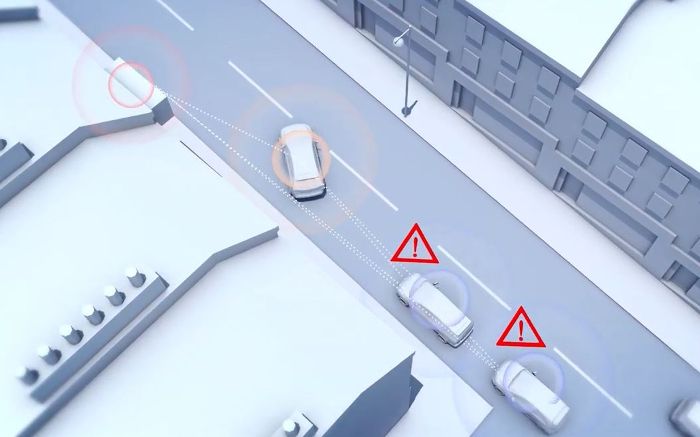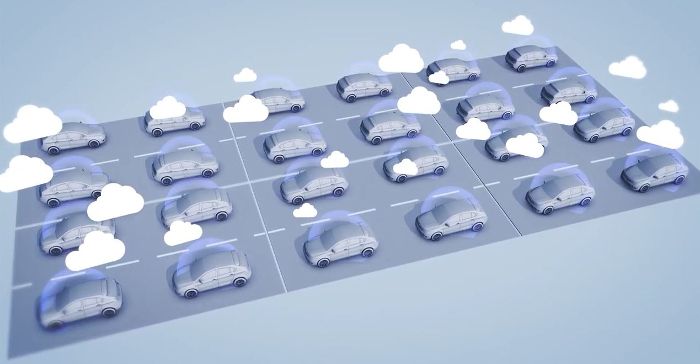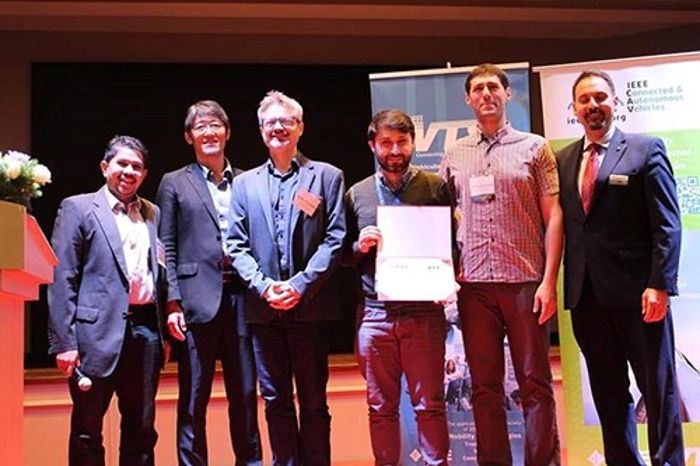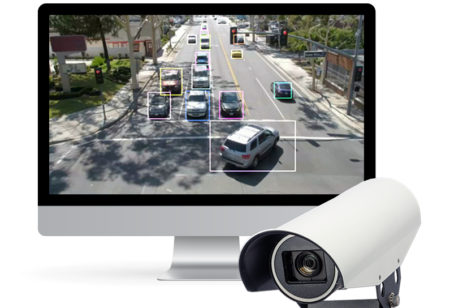A team at the UK’s University of Bristol has won an international award for their innovative work on the development of ‘fog computing’ technology for creating the safe and efficient infrastructure required for connected and autonomous vehicles (CAVs).
The technology designed by the University is detailed in the paper titled, ‘Agile Data Offloading over Novel Fog Computing Infrastructure for CAVs’, which won an award at the Institute of Electrical and Electronics Engineers (IEEE) Vehicular Technology Conference (VTC), held in Kuala Lumpur, Malaysia. The VTC event is the flagship conference of the IEEE Vehicular Technology Society and attracts the world’s top researches and industrialists in the fields of wireless networks, 5G, and the automotive industry. The paper is a collaboration between the University of Bristol and the Atkins consultancy and was awarded the coveted ‘Best Conference Paper Award’.

The award-winning paper from academics in the Communication Systems and Networks (CSN) Group from the University of Bristol’s Smart Internet Lab focuses on the new paradigm of the ‘internet of vehicles’ and how the required infrastructure will transform the system from a swarm of autonomous cars that merely tolerate each other to an orchestrated transportation machine. Automated cars are already being tested on roads around the world and the current generation of CAVs are designed to operate in a completely autonomous mode. This mode requires them to obey highway codes and regulations, drive safely, and deliver passengers at a speed that is ideally not much slower than human-driven car would do. However, the much-heralded potentials of quicker, safer and more predictable transportation can only materialize when vehicles start cooperating meaningfully with each other and also with roadside infrastructure.
The paper explores how the new world of collaborative CAVs will necessitate the development of new road infrastructure, with existing assets such as traffic lights and road signage being augmented (or even replaced) with distributed computing and digital network infrastructures.

The CSN group at the University of Bristol has developed the novel fog compute framework in its role as the main cyber-physical infrastructure architect within the UK’s Flourish CAV project, which concluded this week. The concept behind the fog framework is that it augments cloud computing with additional resources that are located in the proximity of CAVs. This reduces the latency of communication between vehicles and the nearby infrastructure, and facilitates additional safety critical services, allowing CAVs to respond to changing road and traffic conditions, while assuring the provenance of the data source. The fog resources are also used to enable sophisticated trust certificates compression, network coding, and CAV data offloading technologies.
“The cooperation between self-driving vehicles will require the exchange of vast amounts of data with the road-side infrastructure,” noted Dr Andrea Tassi, lead author of the paper. “In our paper, we present a way of decoupling the relay of sensor data to and from connected and autonomous vehicles, with the resource-intensive task of processing them.”
Co-author, Dr Ioannis Mavromatis, added, “We do so by employing a network of fog compute nodes and designing an agile and reliable data-offloading mechanism. Building upon our real-world, large-scale urban trials, we validated the effectiveness and feasibility of our proposal.”





